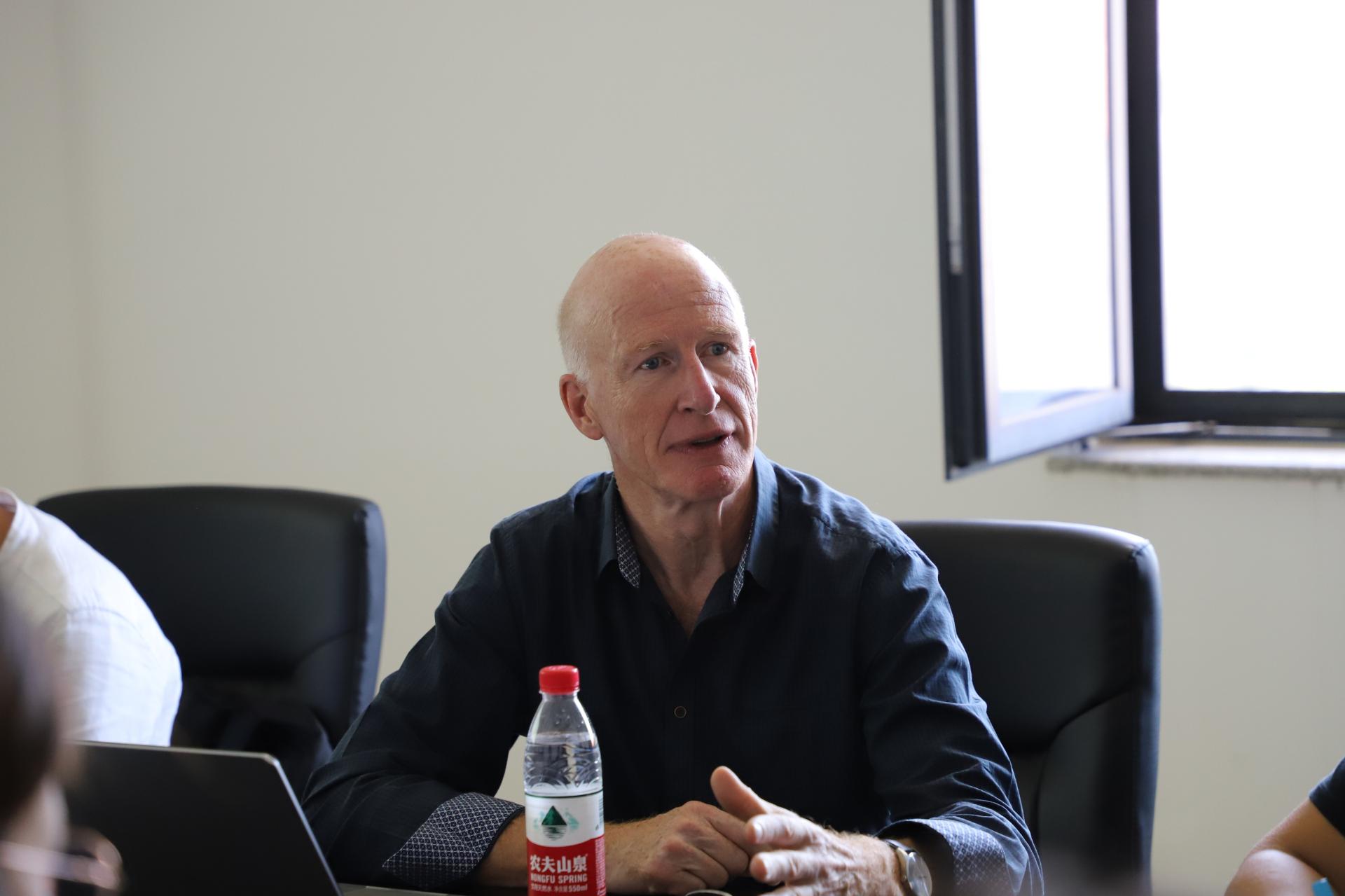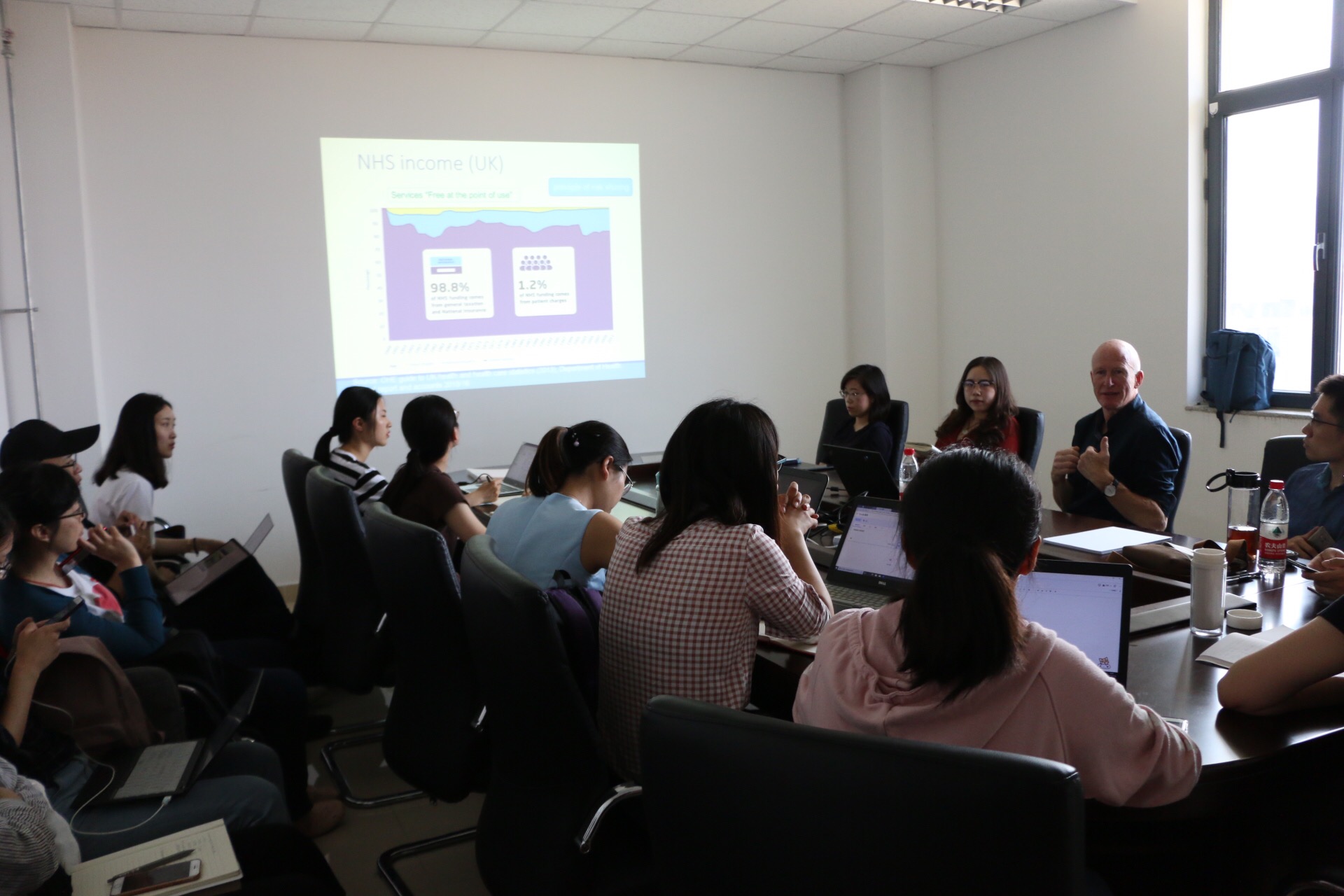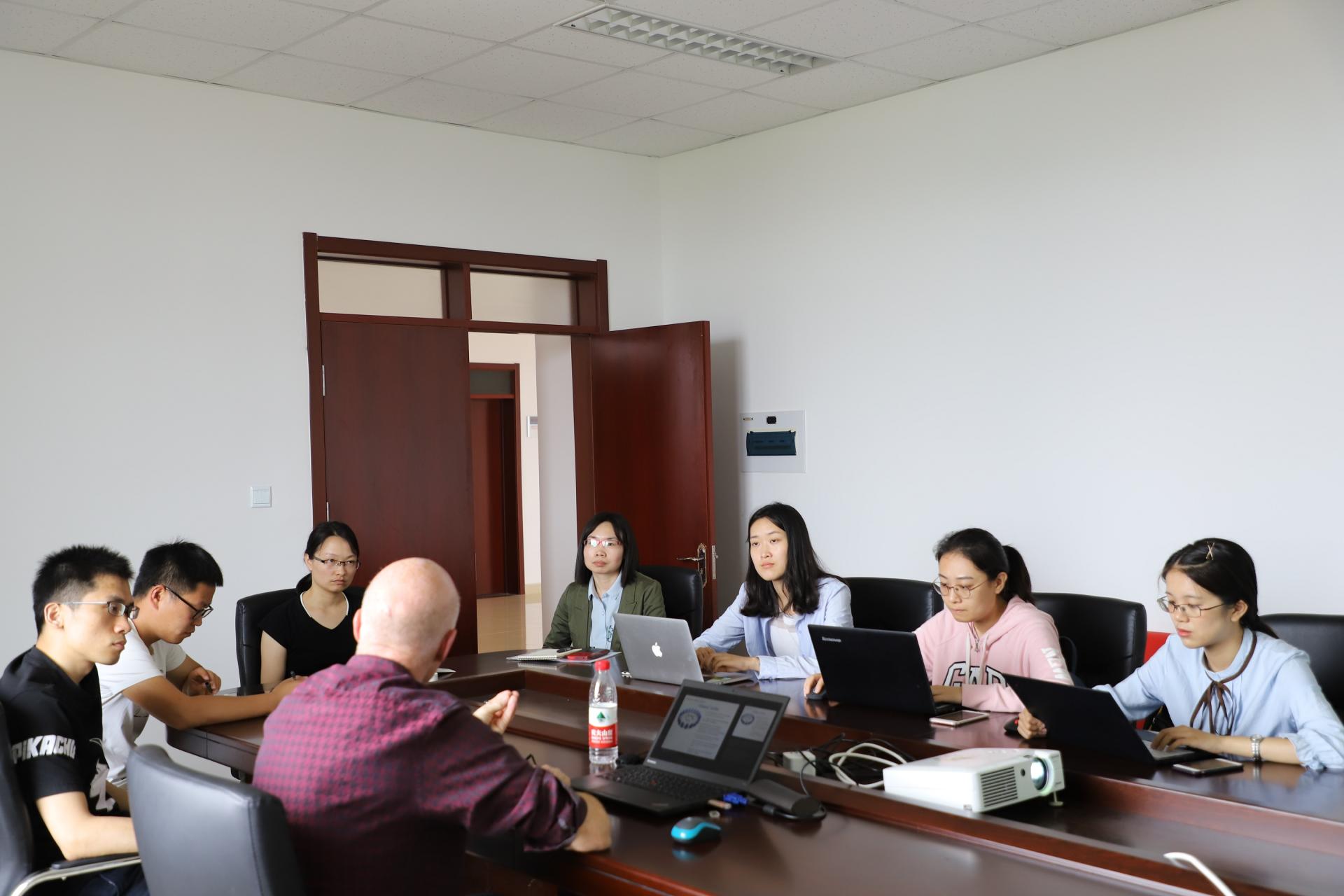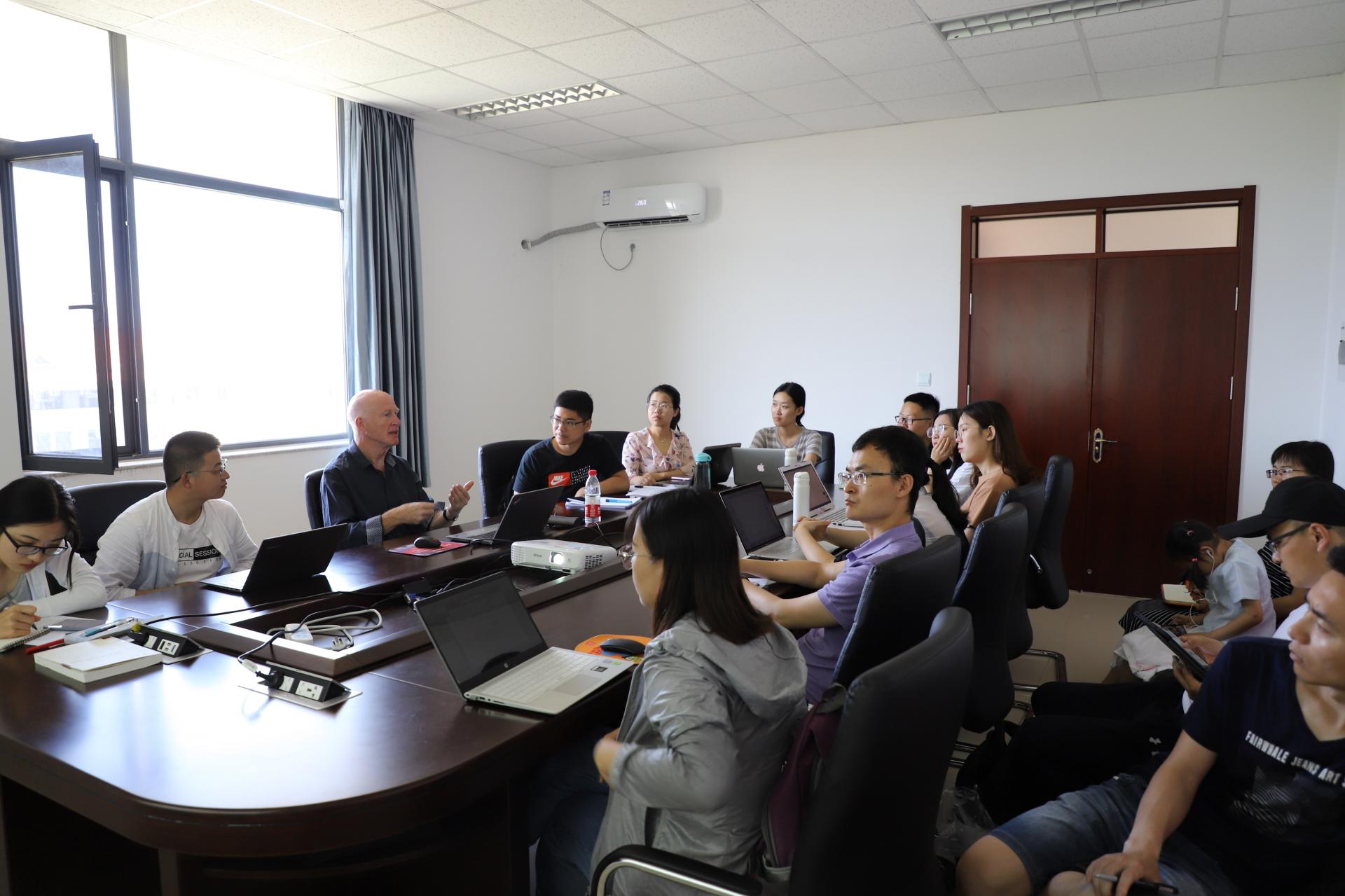From June 18 to 26, 2019, Professor Andrew Thompson of the School of Social and Political Science at the University of Edinburgh, a British scholar with a high reputation for civil rights and public policy, was invited to give a lecture series on public service and citizen participation at the School of Political Science and Public Administration of Shandong University. The lecture was presided by Professor Cao Xianqiang, Vice President of Qingdao Campus of Shandong University and Executive Vice President of the School of Political Science and Public Administration. Teachers and students of relevant majors attend the lecture series.
In a lecture on June 18, Professor Andrew Thompson shared an empirical study on citizen participation in the UK National Health Insurance System. He began by explaining the motivations and methods of citizen participation in medical services, then introduced the research purpose, methods, data sources of the empirical research, and analyzed the factors affecting citizens' participation attitude based on the research results.

On June 19, Professor Andrew Thompson demonstrated the joint production and management mechanism of the Scottish National Health Service by first introducing the British welfare state system and made a simple comparison between state welfare and social welfare. Professor Andrew Thompson then gave a brief introduction of the control of political parties after decentralization ensued by a discussion on the Scottish National Health Service. At the same time he also analyzed the relevant changes in the Scottish National Health Service. Finally, Professor Andrew Thompson explained the theory, citizen preferences, and micro-public groups in the joint production of the Scottish National Health Service.

On June 21, Professor Andrew Thompson gave a special lecture on “Citizen Jury, an example of a participatory and consultative forum that attempts to resolve controversial issues”. He began by expounding the advantages and disadvantages of representative government, indicating that representative government is not a perfect form of government. Subsequently, taking the deliberative voting in Melbourne, Iceland, and Europe, and the “Common Thinking Citizens' Congress” in Scotland in 2013 as examples, he discussed consultative democracy and deliberative needs, small randomly selected public groups and their deliberative decision-making process. Finally, Professor Andrew Thompson gave a detailed explanation of the key issues at the "micro" level, the main research results of the small public, the legitimacy of random selection by the small public, and the challenges of deliberative forum.
On June 24, Professor Andrew Thompson gave a talk on the "hybrid research method" and discussed related issues with many of the students and faculty present. Professor Andrew Thompson first introduced the origin, purpose, role, classification and challenges of hybrid research methods. Subsequently, taking several papers with good application of hybrid research methods as examples, Professor Andrew Thompson explained that hybrid research methods are the main research trend and direction at present, which aims to better explain the research problems. However, there are currently few hybrid research that includes value judgment.

On June 26, Professor Andrew Thompson introduced the application of “hybrid research methods” in the study of democratic innovation. Professor Andrew Thompson overview the civil jury system, and then used the jury's decision on the Scottish offshore wind farm as an example to analyze the hybrid research methods used in this study. The goal of this research is to understand how to use a prudent process to incorporate citizens into complex issues and to understand the views of the public before and after the process. This research first selected a sample of citizen jury, described its position, size, sociodemographic characteristics and local priority environmental attitudes. Then, ethnographers and evaluators recorded the jury's discussion process, and the results of the research were obtained through a combination of qualitative and quantitative research methods. Finally, he added the example of the joint decision of the Scottish Health Care Jury as a supplement. At the end of the lecture, the attendees had a fruitful discussion with Professor Andrew Thompson about the topic and its contents.

Professor Andrew Thompson is professor and PhD supervisor at the School of Social and Political Sciences at the University of Edinburgh. Renowned in the field of civil rights and public policy, especially in the field of health service policy, his research includes politics in health care, public participation in health care, measurement of perception and satisfaction, and quality management. He has published dozens of monographs and important journal papers in this field. He was awarded the “Health Partnership” Research Award by the UK Ministry of Health for his outstanding research in this field.